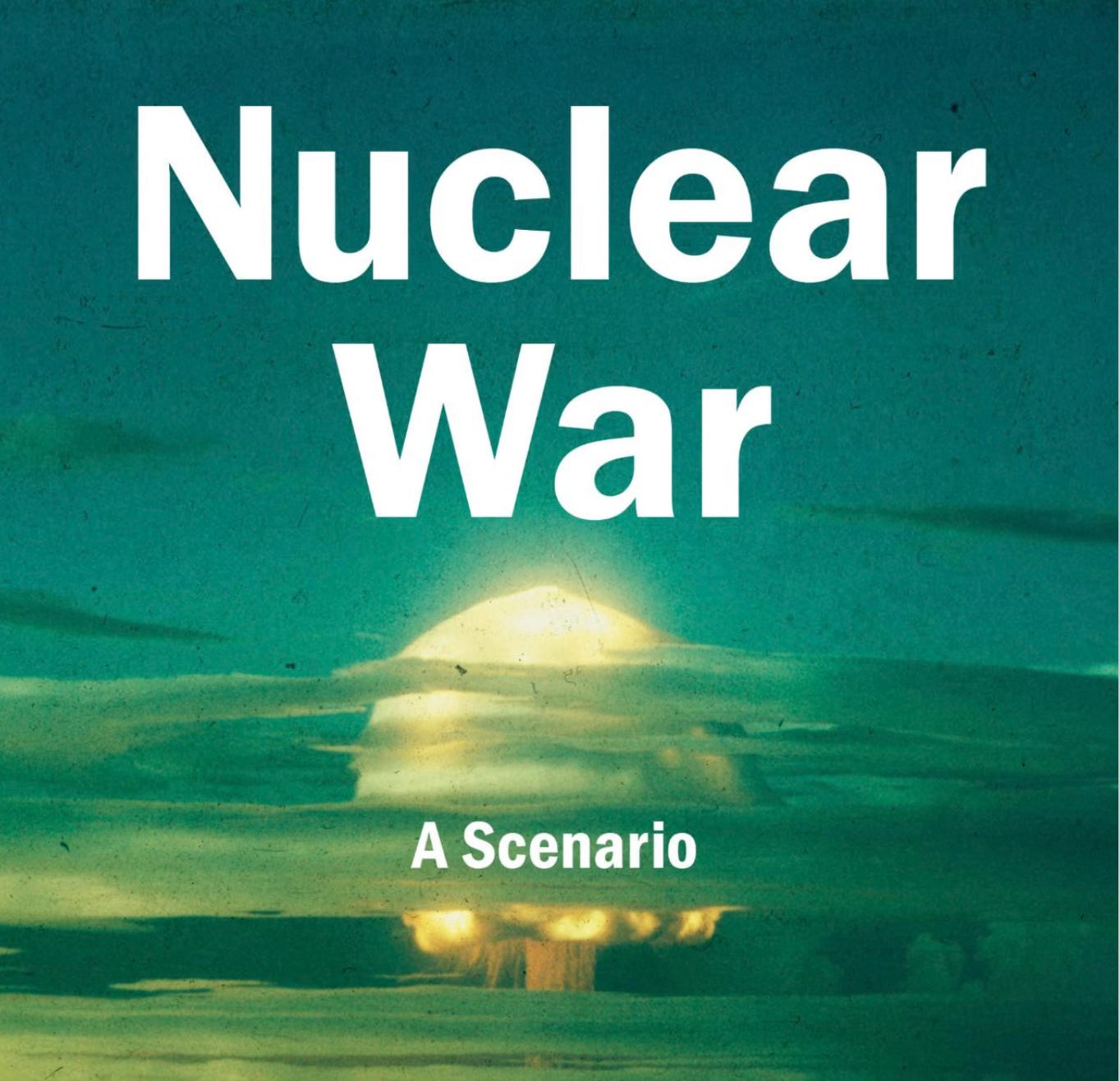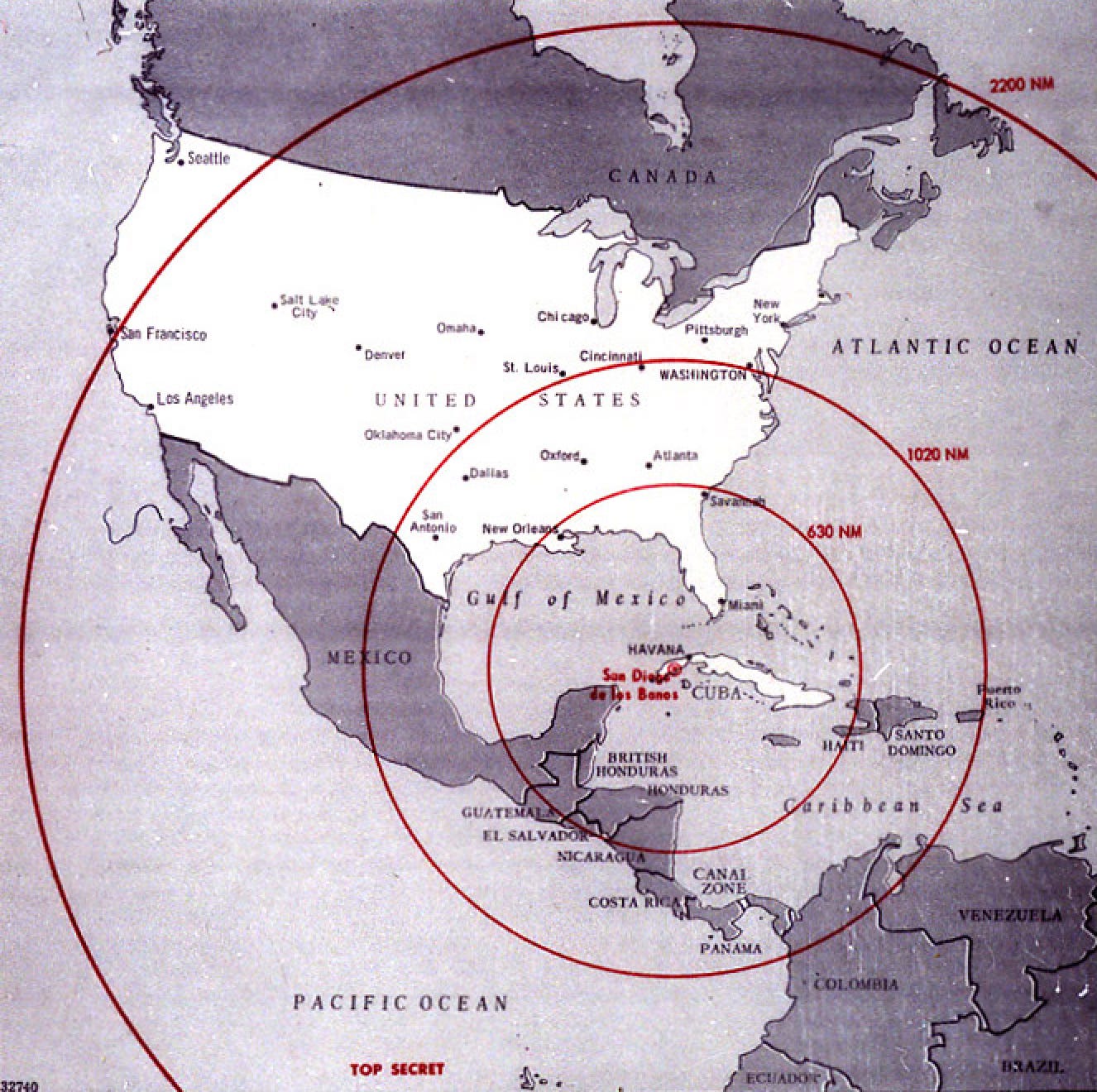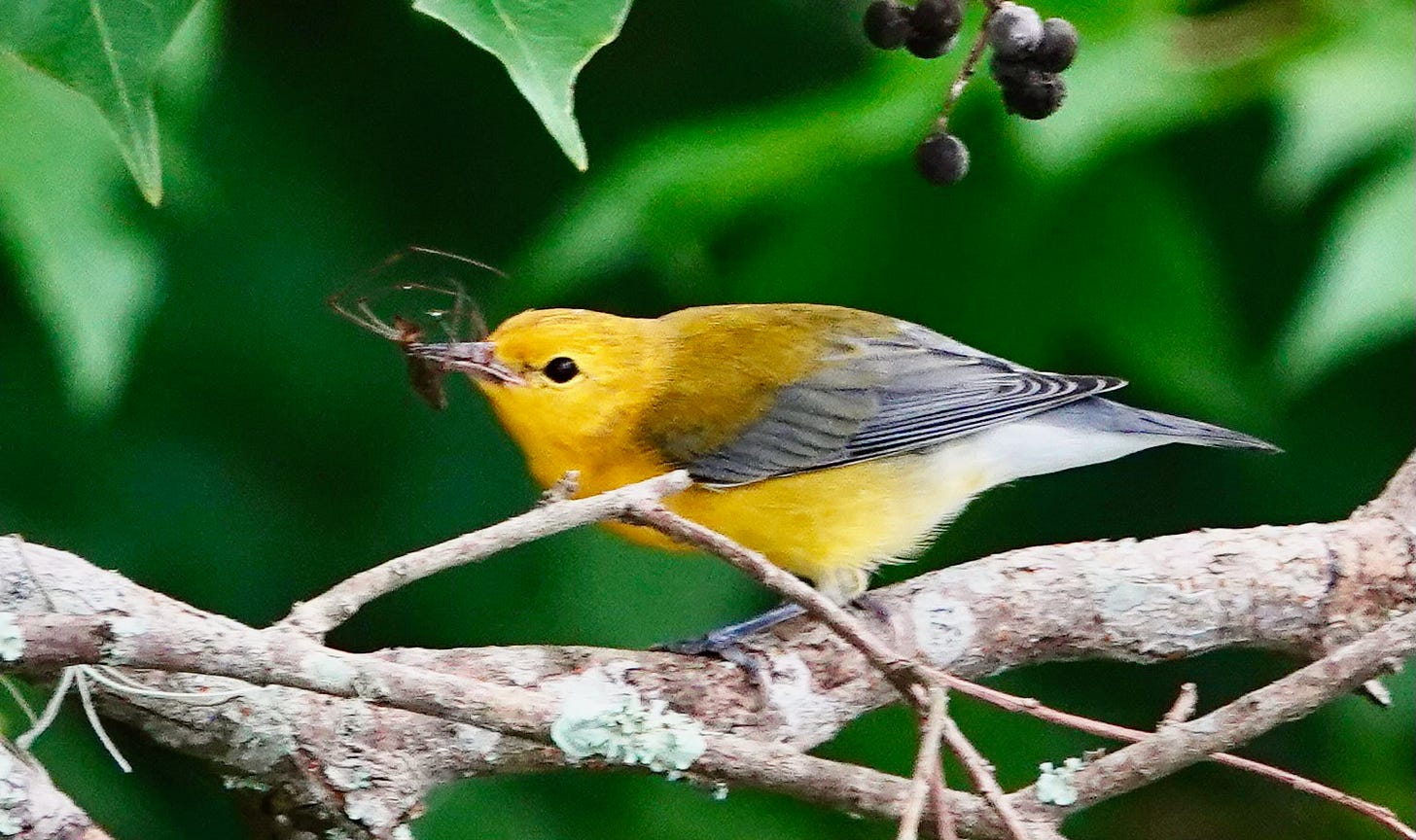How close to midnight?
Hardly a remote possibility, nuclear warfare is now only a few ticks away.
In January 2024, the Bulletin of Atomic Scientists, which tracks the risk of nuclear war, set the Doomsday Clock at 90 seconds to midnight—“closest ever to apocalypse.” Since then, conflicts in Ukraine and the Middle East have gotten immeasurably worse, as have tensions between nuclear-armed nations.
Scenario
The Israel-Iran conflict escalates to all-out war. The U.S. enters on the side of Israel after a Houthi missile hits one of its nearby war ships, killing hundreds of sailors. As Russia insists Iran will not lose, its military intelligence reports that U.S. aircraft in the Mediterranean Sea have loaded nuclear weapons for a preemptive strike on its military and industrial centers. Russia responds by launching nuclear missiles at U.S. targets, and World War III begins—ultimately destroying much of the world.
For a detailed scenario, see Annie Jabcobson’s book (March 2024).

Scaling down in a flash
Instantaneous, massive elimination of human life is obviously not what we have in mind for restoring Earth’s ecological balance. I launched Scale Down first on Facebook several years ago. My purpose was to urge people, and especially other environmentalists, to advocate for drawing down the global human enterprise for the wellbeing of all life. I’m still confident this could be done through equitable and humane efforts dealing with overpopulation, overconsumption, and human disrespect for nature. When I lose hope, I’ll quit posting.
Here’s the thing—unless the world’s big military powers come to their senses soon, there may be no chance for orderly “degrowth,” “sustainable development,” or regenerative anything. Earth’s wondrous diversity will be ashes. The current climate crisis becomes irrelevant.
For some weird reason, the risk of nuclear war is on the back burner of public concern. Corporate media shows little interest. Political leaders have other more pressing concerns. And ordinary people pretty much assume that a nuclear exchange won’t or can’t happen. Nevertheless, a nuclear missile launch, triggered by hatred, fear, or a fateful error, is today more likely than at anytime since the height of the Cold War.
It doesn’t matter much who starts the war: when one side launches nuclear missiles, the other side detects them and fires back before impact. Ballistic missiles from U.S. submarines west of Norway start striking Russia after about 10 minutes, and Russian ones from north of Canada start hitting the U.S. a few minutes later. — Max Tegmark, MIT professor of AI research.

“You can keep your family safe”?
Government assures us we can “keep our family safe” during a nuclear attack. Listen up! The Business Insider and MIRA provide updated tips on how to survive one! There’s a bit of perverse humor to this. I’m not sure if such advice is sincere, or more intended to have us accommodate the threat of nuclear war.
Climate Change on Steroids
Most of what you’ll read on the probable aftermath of a nuclear exchange involves impacts on a single species—us—out of about 10 million on Earth. So, I’d like to emphasize here what all life would face in the event of nuclear war.
Locally — Unimaginable blinding light and heat, ear-piercing blasts (literally), fire storms, radioactive clouds, and unbelievable amounts of flying debris. Life nearest the blasts is instantly incinerated.
Regionally — As radioactive carbon smoke spreads, photosynthesis comes to a halt, air temperatures crash, ice covers fresh waters, mass starvation and famine follow. Survivors not damaged by initial fallout face weekly doses of radiation hundreds of times higher than background. Countless die from radiation sickness if not from direct injury caused by the blasts.
Globally — Black smoke diminishes sunlight triggering a “nuclear winter.” Marine as well as terrestrial ecosystems dependent on photosynthesis degrade or collapse. Wildlife populations plummet, most or many go extinct. The greatest impacts are in the northern hemisphere (where the nuclear exchange is most intense) but extend to the tropics, where countless species are decimated. The nuclear explosions produce huge quantities of ozone-destroying chemicals resulting in unprecedented levels of ultraviolet light reaching ground level, damaging eyes, skin, and the immune systems of exposed animal life.
Life in the southern hemisphere suffers less. However, even Australia, New Zealand, and places like the Solomon Islands and Vanuatu would experience “severe ASRS [abrupt sunlight reduction scenarios}…with cascading impacts through socioecological systems.”
Of course, there are many variables to consider and all kinds of scenarios, imaginable and unimaginable, that could manifest during and after nuclear war. Perhaps things wouldn’t be as bad as some models suggest. Perhaps worse.
Things you must do to help avert nuclear war
Choose governments willing to gamble on peace rather than on war. (In life, almost everything is a gamble.) We can choose to demonize other nations and leaders, or we can attempt to understand the world through their eyes. This approach allowed U.S. President John F. Kennedy and the Soviet Union’s Nikita Khrushchev to work out a deal that prevented nuclear war in 1962.
Make the threat of nuclear war a most prominent issue. Stay informed about the risk and talk up the urgent need to reduce it with friends, politicians, and through the media. Get this issue back on the “front burner”!
Demand an end to human supremacy. I’m convinced that human arrogance toward other life heightens the likelihood of nuclear war. If all life were viewed as sacred, our worse tribal instincts would be better controlled in order to preserve that greater good.
Go into politics. If you are energetic, thick skinned, and principled, enter as a peace candidate.
Pray for enlightenment and peace. Strengthen our reverence for living creation, and our moral responsibility to protect it. Pray a lot. And let the world know why.

❖
More could be said about the veritable existential threat of nuclear war (I get tired of hearing those overused words, but in this case they couldn’t be more apropos). But, given worsening events in recent days, I feel the need to post now rather than never!
If that sounds fatalistic, let me assure you I don’t have a psychiatric disorder. However, hear ye:
As a kid, I experienced the Cuban missile crisis of October 1962. In the 1950s, I recall “standing by” with my parents glued to the radio for updates on hydrogen bomb testing. At school, my classmates and I ducked under our desks during nuclear attack drills. (God bless our well-meaning teachers.) While I occasionally joked about some of this, I also had nightmares of blinding lights and nuclear blasts everywhere; and about my kitten and bug garden vaporized. I watched movies like On the Beach (1954), Dr. Strangelove (1964) and later The Day After (1983). Fear of nuclear war became part of my psyche. Nevertheless, I’m blessed with good observational skills, pay close attention to diverse news and views, and, of course, to history. So, I’m a qualified canary in the coal mine.

SCALE DOWN is a reader-supported publication. To receive new posts and support my work, please become a free or paid subscriber. I’d very much appreciate that. Thank you!






Apartment in Chile sounds good! What an essay!
Ive read you’d be fairly safe from fallout etc. in South America. Farther south the better, I suppose.
As long as we have leaders like Putin, Kim Jong Ing, and god forbid, trump, we will always be close to nuclear war. And also the permanent tensions in the Middle East that have been and will be for centuries. And the gullibility of half the populace of the US in particular, to conspiracy theories, cult brainwashing susceptible personalities and apathy and lack of critical thinking, ethics and such a wild array of disinformation that exists and/or cannot be checked….it’s just a matter of time.